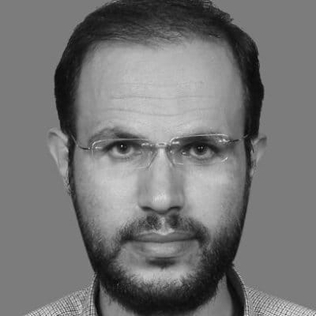This page is a partial listing of incidents of violence in the Israeli-Palestinian conflict in 2000.
The 2004 Israeli operation in the northern Gaza Strip took place when the Israel Defense Forces launched Operation "Days of Penitence", otherwise known as Operation "Days of Repentance" in the northern Gaza Strip. The operation lasted between 29 September and 16 October 2004. About 130 Palestinians, and 1 Israeli were killed.
Beit Lahia or Beit Lahiya is a city in the Gaza Strip, north of Jabalia, in the North Gaza Governorate of the State of Palestine. It sits next to Beit Hanoun and close to the border with Israel. According to the Palestinian Central Bureau of Statistics, the city had a population of 89,838 in 2017.
This page is a partial listing of incidents of violence in the Israeli-Palestinian conflict in 2005.

The North Gaza Governorate is one of the five governorates of Palestine in the Gaza Strip which is administered by Hamas, aside from its border with Israel, airspace and maritime territory. According to the Palestinian Central Bureau of Statistics, the Governorate had a population of 270,245 with 40,262 households in mid-year 2007 encompassing three municipalities, two rural districts and one refugee camp.

Palestinian literature refers to the Arabic language novels, short stories and poems produced by Palestinians. Forming part of the broader genre of Arabic literature, contemporary Palestinian literature is often characterized by its heightened sense of irony and the exploration of existential themes and issues of identity. References to the subjects of resistance to occupation, exile, loss, and love and longing for homeland are also common.

In 2008, Israel sought to halt the rocket and mortar fire from Gaza that killed four Israeli civilians that year and caused widespread trauma and disruption of life in Israeli towns and villages close to the Gaza border. In addition, Israel insisted that any deal include an end to Hamas's military buildup in Gaza, and movement toward the release of Corporal Gilad Shalit. Hamas wanted an end to the frequent Israeli military strikes and incursions into Gaza, and an easing of the economic blockade that Israel has imposed since Hamas took over the area in 2007.
Strawberry Fields is a 2006 documentary film by Israeli filmmaker Ayelet Heller about the hardships faced by Palestinian strawberry farmers in Gaza, who find their livelihood disrupted by the Israel-Gaza conflict.
Al-Atatra is a northwestern neighborhood in the city of Beit Lahiya in the northern Gaza Strip. Its residents, the majority of whom are farmers or landowners are not Palestinian refugees, unlike most of the population in the Gaza Strip, including Beit Lahiya. A major cash crop in al-Atatra are strawberries which were mainly exported to Israel and the West Bank before Israel's siege of the Gaza Strip following the territory's control by Hamas, a Palestinian paramilitary and political organization.
Simone Camilli and Ali Shehda Abu Afash were journalists for the Associated Press who were killed by an Israeli bomb while reporting on the 2014 Israel–Gaza conflict. Camilli, an Italian, and Abu Afash, a Palestinian, had been reporting on a Palestinian bomb disposal team in Beit Lahiya, Gaza Strip as they dismantled an unexploded Israeli missile. The explosive was triggered, killing Camilli, Abu Afash, and 4 members of the bomb squad. Camilli became the first foreign journalist to die by an Israeli bomb in the 2014 conflict.
This is a list of individual incidents and statistical breakdowns of incidents of violence between Israel and Palestinian dissident factions in 2014 as part of the Israeli–Palestinian conflict.

The Middle East Monitor (MEMO) is a not-for-profit press monitoring organisation and lobbying group that emerged in mid 2009. MEMO is largely focused on the Israeli–Palestinian conflict but writes about other issues in the Middle East, as well. MEMO is pro-Palestinian in orientation, and has been labelled by some commentators as pro-Islamist, pro-Muslim Brotherhood, and pro-Hamas.
List of violent events related to the Israeli-Palestinian conflict occurring in the second half of 2015.
The following is a timeline of events during the Israeli–Palestinian conflict in 2017.
Mohammed el-Kurd is a Palestinian writer and poet, who has gained prominence for his description of Palestinians' lives under occupation in East Jerusalem, the rest of the West Bank; el-Kurd has referred to evictions as a form of ethnic cleansing, and has also accused Israel of imposing apartheid-style laws and regulations onto Palestinians in the occupied territories. He has also spoken out about the oppression in the Gaza Strip, notably the Israel–Hamas war.

Since the outbreak of the Israel–Hamas war on October 7, 2023, Israel has carried out mass arrests and detentions of Palestinians. Thousands have been arrested in the Israeli-occupied Palestinian territories and in Israel, based on alleged militant activity, offensive social media postings, or arbitrarily.

Refaat Alareer was a Palestinian writer, poet, professor, and activist from the Gaza Strip.
On 19 October 2024, the Israel Defense Forces conducted attacks on Beit Lahia in northern Gaza, killing at least 92 Palestinians and injuring more than 100, with many more missing believed to be trapped under the rubble. Israeli airstrikes and artillery shells struck several buildings in densely packed residential blocks filled with local residents and evacuees, primarily in the western regions of the city.






